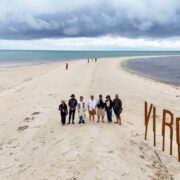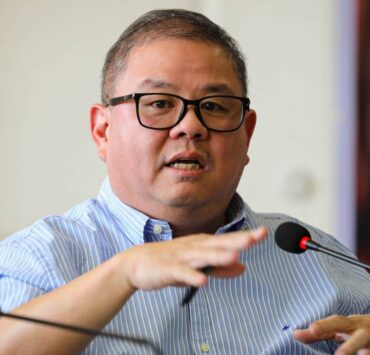Marcos approves visas for digital nomads

President Marcos has approved the issuance of digital nomad visas (DNVs) to nonimmigrant foreigners who want to temporarily live in the Philippines for remote work.
“To further boost tourism and economy in the country, there is a need to establish a legal framework to facilitate the entry of digital nomads in the country, or foreign nationals who desire to temporarily stay in the Philippines while engaging in remote work activities for overseas employers or clients,” said Mr. Marcos in signing Executive Order No. 86 on Thursday.
Issuing special nonimmigrant visas to digital nomads aligns with the Philippine Development Plan 2023-2028 and government efforts to promote tourism, economic activity and digital innovation, he said.
Who can apply
The President also cited data from the World Economic Forum placing the country as the seventh fastest-growing remote work hub in the world in 2023.
EO 86 directs the Department of Foreign Affairs (DFA) to issue DNVs to nonimmigrant foreigners or digital nomads who want to temporarily reside and work remotely in the country for overseas employers or clients.
A digital nomad refers to a person who travels, live and works remotely from several locations with the help of technology and the internet for connectivity.
To be eligible for a DNV, a foreigner must be at least 18 years old and must present proof of remote work using digital technology.
He or she must show proof of sufficient income generated outside the Philippines, should have no criminal record, or should be deemed as no security threat.
Length of stay
The applicant should also have health insurance coverage during the visa’s validity and must be a national of a country that offers DNVs to Filipinos and has a Philippine foreign service post.
Foreigners who are issued DNVs are allowed to enter and stay in the country for a maximum period of one year.
They may renew the DNVs for the same duration and may be granted multiple entry privileges.
The DFA is also tasked to create a database of DNV holders for monitoring purposes and coordinate with the Bureau of Immigration in facilitating the security clearance of those applying for DNVs.
Foreigners who come from countries that offer DNVs to Filipinos but do not have a Philippine foreign service post may apply in the nearest country where a Philippine foreign service post is found.
Revoking a DNV
Under the EO, a DNV may be revoked if the foreigner engages in local employment, commits fraud or misrepresentation in the application, or violates the Philippines’ immigration law.
The DNV program will be launched within the next 60 days while the implementing rules and regulations will be issued in the next 30 days.

















